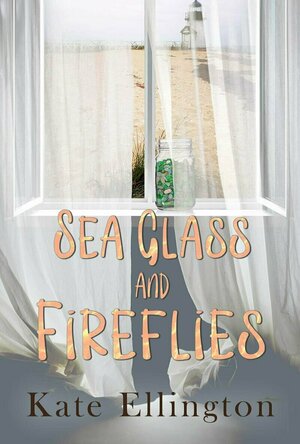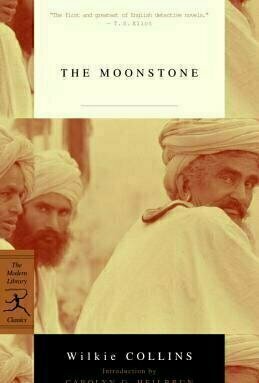Search
Search results
Merissa (13742 KP) rated Sea Glass and Fireflies in Books
Apr 29, 2024
SEA GLASS AND FIREFLIES is an emotional second-chance historical romance.
Elsie and Charles were childhood friends, on the brink of something more, when Charles left, promising to write frequently. This dwindled off and Elsie was courted by Gabriel, also a friend to them both. The story starts on what should have been Elsie and Gabriel's wedding day, as she prepares to live with her uncle for a while, to try and work through her complicated emotions over the loss of Gabriel at sea. Once there, she reconnects with Charles, but is she reading too much into it?
This was a page-turner that kept me gripped from the very beginning. As a reader, you can feel Elsie's emotions and all the confusion she is working through. I do wish I'd have had some from Charles' side, but that made the ending all the more satisfactory.
Well-written, with lovely descriptions throughout, and with a smooth pace, this book was a delight to read. It is the first by this author I have read, and I look forward to reading more by her in the future. HIGHLY RECOMMENDED by me.
** same worded review will appear elsewhere **
* A copy of this book was provided to me with no requirements for a review. I voluntarily read this book; the comments here are my honest opinion. *
Merissa
Archaeolibrarian - I Dig Good Books!
Apr 29, 2024
Elsie and Charles were childhood friends, on the brink of something more, when Charles left, promising to write frequently. This dwindled off and Elsie was courted by Gabriel, also a friend to them both. The story starts on what should have been Elsie and Gabriel's wedding day, as she prepares to live with her uncle for a while, to try and work through her complicated emotions over the loss of Gabriel at sea. Once there, she reconnects with Charles, but is she reading too much into it?
This was a page-turner that kept me gripped from the very beginning. As a reader, you can feel Elsie's emotions and all the confusion she is working through. I do wish I'd have had some from Charles' side, but that made the ending all the more satisfactory.
Well-written, with lovely descriptions throughout, and with a smooth pace, this book was a delight to read. It is the first by this author I have read, and I look forward to reading more by her in the future. HIGHLY RECOMMENDED by me.
** same worded review will appear elsewhere **
* A copy of this book was provided to me with no requirements for a review. I voluntarily read this book; the comments here are my honest opinion. *
Merissa
Archaeolibrarian - I Dig Good Books!
Apr 29, 2024
Phil Leader (619 KP) rated The Moonstone in Books
Nov 20, 2019
Of all the books I had to read at school, The Moonstone was probably the only novel I really enjoyed. It is one of the first 'whodunnit' type of books and, remarkably, it manages to hit virtually every requirement of the genre dead centre. If this book was written today, it would still be a classic.
The Moonstone of the title is a rare yellow diamond, stolen from an Indian shrine by colonialists. Thought to be unlucky it is left to the young Rachel Verinder. The night after her 18th birthday party the stone is stolen from her rooms, and the rest of the novel describes how the various players eventually manage to solve the crime.
The plot features twists and turns galore, false trails and red herrings enough for two detective stories. Although the crime involved is 'only' theft rather than the more usual murder it is no less engaging as a story. The characters are well drawn and - social reformer that Collins was - there are strong women and intelligent and interesting servants as well as the landed gentry and philanthropists that inhabit the world of country estates in the mid 19th century that the novel is set in.
One feature of the book is that the story is told from the viewpoint of a number of the players. Firstly (and for nearly half the book) we are introduced to the Verinders and the theft by Gabriel Betteredge, a long serving family retainer who is head of the staff and a sort of de facto butler. Betteredge's narrative is charming and witty, full of dry asides and observations. His habit of picking passages from Robinson Crusoe and applying them to daily life is a quirk that is completely in keeping with his character.
Once the story moves to London, the narrative is taken up by various other characters, sometimes just for a short journal entry, sometimes for extended periods of time. Collins imbues each of these parts with a different voice really skillfully, keeping each character very separate.
The solution to the mystery of who stole the diamond and why is convoluted but also very simple. The whole story is well crafted and fits together really well.
The only negative points really are those imposed on Collins by the time he was writing this. There is an overlong introduction about the diamond in India (it seems that in Victorian novels the long winded introduction is somehow expected by the reader) and the pace slows somewhat in London as there is a lot of description about the character's social standings and financial affairs that just aren't as relevant today.
Nevertheless this really is as good a book as I remember. I certainly rate Collins a lot higher than Charles Dickens as a writer. Definitely recommended for anyone who likes a detective mystery which will keep the reader guessing until the very end.
The Moonstone of the title is a rare yellow diamond, stolen from an Indian shrine by colonialists. Thought to be unlucky it is left to the young Rachel Verinder. The night after her 18th birthday party the stone is stolen from her rooms, and the rest of the novel describes how the various players eventually manage to solve the crime.
The plot features twists and turns galore, false trails and red herrings enough for two detective stories. Although the crime involved is 'only' theft rather than the more usual murder it is no less engaging as a story. The characters are well drawn and - social reformer that Collins was - there are strong women and intelligent and interesting servants as well as the landed gentry and philanthropists that inhabit the world of country estates in the mid 19th century that the novel is set in.
One feature of the book is that the story is told from the viewpoint of a number of the players. Firstly (and for nearly half the book) we are introduced to the Verinders and the theft by Gabriel Betteredge, a long serving family retainer who is head of the staff and a sort of de facto butler. Betteredge's narrative is charming and witty, full of dry asides and observations. His habit of picking passages from Robinson Crusoe and applying them to daily life is a quirk that is completely in keeping with his character.
Once the story moves to London, the narrative is taken up by various other characters, sometimes just for a short journal entry, sometimes for extended periods of time. Collins imbues each of these parts with a different voice really skillfully, keeping each character very separate.
The solution to the mystery of who stole the diamond and why is convoluted but also very simple. The whole story is well crafted and fits together really well.
The only negative points really are those imposed on Collins by the time he was writing this. There is an overlong introduction about the diamond in India (it seems that in Victorian novels the long winded introduction is somehow expected by the reader) and the pace slows somewhat in London as there is a lot of description about the character's social standings and financial affairs that just aren't as relevant today.
Nevertheless this really is as good a book as I remember. I certainly rate Collins a lot higher than Charles Dickens as a writer. Definitely recommended for anyone who likes a detective mystery which will keep the reader guessing until the very end.

